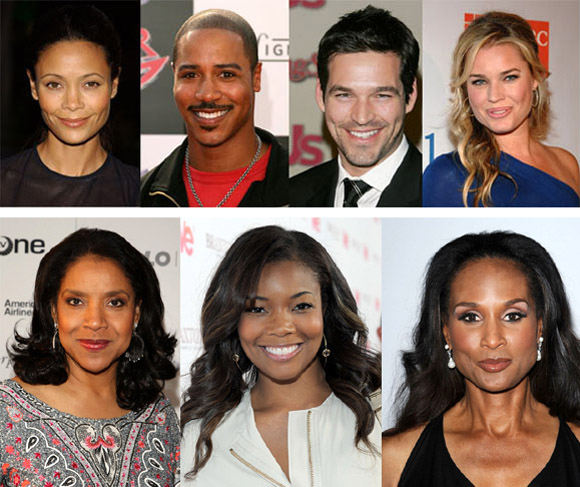Toni Morrison wrote:
“Images of Blackness [in US Literature] can be evil and protective, rebellious and forgiving, fearful and desirable – all of the self-contradictory features of the self… Or so our writers seem to say.”
In the multicultural world of film today, is it appropriate to claim black authenticity? What is a black film, what is wrong with black authenticity and why are some ‘black’ filmmakers shying away from it? Where are all the black movies?
It is not uncommon to find black filmmakers claim that their films are meant for a universal audience and that white characters could easily replace their black characters. However when they claim, at the same time, that their films are ‘uniquely’ or rather, ‘authentically’ black, is there a contradiction?
In black cinema, it will be difficult to ignore the debate over who is telling this or that ‘truth’ about black people – the Spike Lees? And who is (mis)-representing black people – the Tyler Perrys? The argument has always boiled down to what really is the authentic Black Image? And how different is it from the non-black image?
There’s no consensus. There cannot possibly be one, because of the inherent complexity. But in an insatiable need to define it, many academics in film, sociology, cultural studies and such, find themselves completely at sea – engaging quite actively rather in deconstructing blackness – that there’s no such thing as ‘black’ except the 40 million different lived experiences of a group of people who happen to share in only one thing – their ‘dark’ color.
Hence the never ending talk of ‘colorism’ and ‘post-blackness’ in the media, which in my opinion is a perfect replacement term in this conscious attempt to avoid any real talk about blackness, black people, black cinema and black images in film.
Even the NAACP refuses to clarify who they actually represent. For an organization that was built to advance Colored People (Black People), it is now very confusing who they really advance, as they continue to use the terms ‘Colored People’ and ‘People of Color’ (All Non-White People) increasingly interchangeably, especially in the face of the fact that more black men are in prison than were slaves a good two hundred years ago. Is it an organization for People of Color or is it an organization for Colored People (Black People)?
Peradventure, like Toni Morrison intimated, is it because talk of black people, African-Americans and black images in the media has come to denote such a rebellion, revolution, fear and sometimes evil that it is inappropriate to confront its authenticity? Why are people shunning talking about black authenticity in film and the plight of black people in these categorical terms in American Cinema today? Better yet, why are we not making authentic black cinema anymore?
Even worse, the most ‘renowned’ black intellectuals – gathered in their Iv(or)y Towers of Thought – continue to refrain from using the term blackness in its authenticity and whenever they use it, they fight tooth and nail to deconstruct it – often claiming it exists, but that, it really doesn’t exist! Only now we are accustomed to the Iv(or)y Colored Thoughts Of These Intellectuals – perhaps a result of their training.
Furthermore, it has become more obvious now that the attempt at deconstructing blackness is only an unfaithful ploy to avoid real talk, real issues and most probably, a lack of commitment to finding a lasting solution to the plight of the millions of black folk in America. Which is then reflected in its most disproportionate manifestations in the representation of black images in cinema.
As far as I am concerned, the major criticisms against the construction and assigning of black authenticity in film fall short of a tenet of life itself – that difference is in fact the whole essence of life.
The essentializing power of the uniqueness of blackness in film then, is not to use it as point of oppression but rather as a point of enhancing all the rich aspects of life and film. Everywhere the world over in the twenty-first century, we celebrate diversity! We tout our horns and boast that our communities, schools, churches, and government institutions are diverse.
If diversity is indeed the sauce of life – why deny it, why kill it, why deconstruct it? Therefore, the essentializing moment of black authenticity is strong not because it naturalizes and dehistoricizes difference – that will be the first unfortunate misreading of it – nor does it mistake what is historical and cultural for what is natural, biological, and generic. Black authenticity is strong because, all these elements – the history, the culture, the environment, the biological and the generic – essentially constitute blackness – the whole total of it.
That is why when the signifier “black” is composed from its historical roots, its cultural vibrancy, and political embedding and lodged within its biologically constituted racial category, we do not in anyway intend to valorize, by invertion, the very ground of the racism we are trying to deconstruct.
That will be the second unfortunate misreading of it. What we hope to achieve is give blackness a chance, a stage in film, a space in cinema, to blossom, to flourish and pollinate the world as it has always done for many aspects of non-black peoples lives.
Alas, maybe soon enough, some bold black financiers will recognize this authenticity, take on the mantle and support the few filmmakers out there fighting the elements to make us some real black movies and perhaps, eventually defeat the Iv(or)y Colored Intellectual Thought of Blackness and Black Authenticity in film today.











When I go to the movies, I would rather see a movie that comes from a black perspective than some watered down Hollywood version of black people. In my opinion, the real black movies came in the 1990s. Nobody can deny that our favorites The Best Man, Love and Basketball, The Wood, and all those other 90s movies were black movies, but now it’s hard to tell.
This article ignores the very reason why these discussions are happening in the first case- because for 5 centuries the Black Image has been monolithically constructed by whites in the folk culture, fine arts, and in popular culture- especially through Hollywood. This construction is institutional- pervading school curricula- and the mainstream- imbedded as the very text of news and daily media-speak. These depictions have almost been universally pathological and destructive to Black personhood, ancestral memory, complexity, diversity, genius, and achievement. On top of this, all attempts by Blacks for self-definition have almost always been met with scrupulous and often brutal resistance. We now have arrived at a place where a handful of black talents have access to mainstream image-making tools- most under heavy supervision, scrutiny, and sanction. The weight of the needs of the Tribe upon this handful is overwhelming- especially when many aren’t historically equipped to understand the onslaught of the past and their responsibilities of the present and future. The numbers are still overwhelming- white-controlled images of Blacks will still outnumber black-controlled images of Blacks by about 100,000 to 1. Conservatively. And who is to say that all of the Blacks who have access have the interest of their people at heart? Which brings us to this discussion. The solutions remain the same- production and distribution. We must find creative ways to fund the production of a broad diverse section of Black Voices- and find a way for them to be shown in mainstream and community space where the majority of our people can see them. Only when that ratio(100,000 to 1) is reversed will Black People be truly free.
Very well said. You add to this fine article. The ratio is a whole lot more humiliating than humbling. With such odds, 0.000001, can we really make it? Darrrn!
@ rubadiri good points! I agree that the ratio has to be reversed. we need more representation. but since we’re only around 12% of the population, we gotta do more with what we have than just wait to get equal numbers of films out them. but you make a good point that production and distribution are key. i think right now a lot of people are out there trying to produce, some of it quality some not. but hopefully with more spaces like these on the web and other places we can get to see some stuff from people struggling to get their films seen.